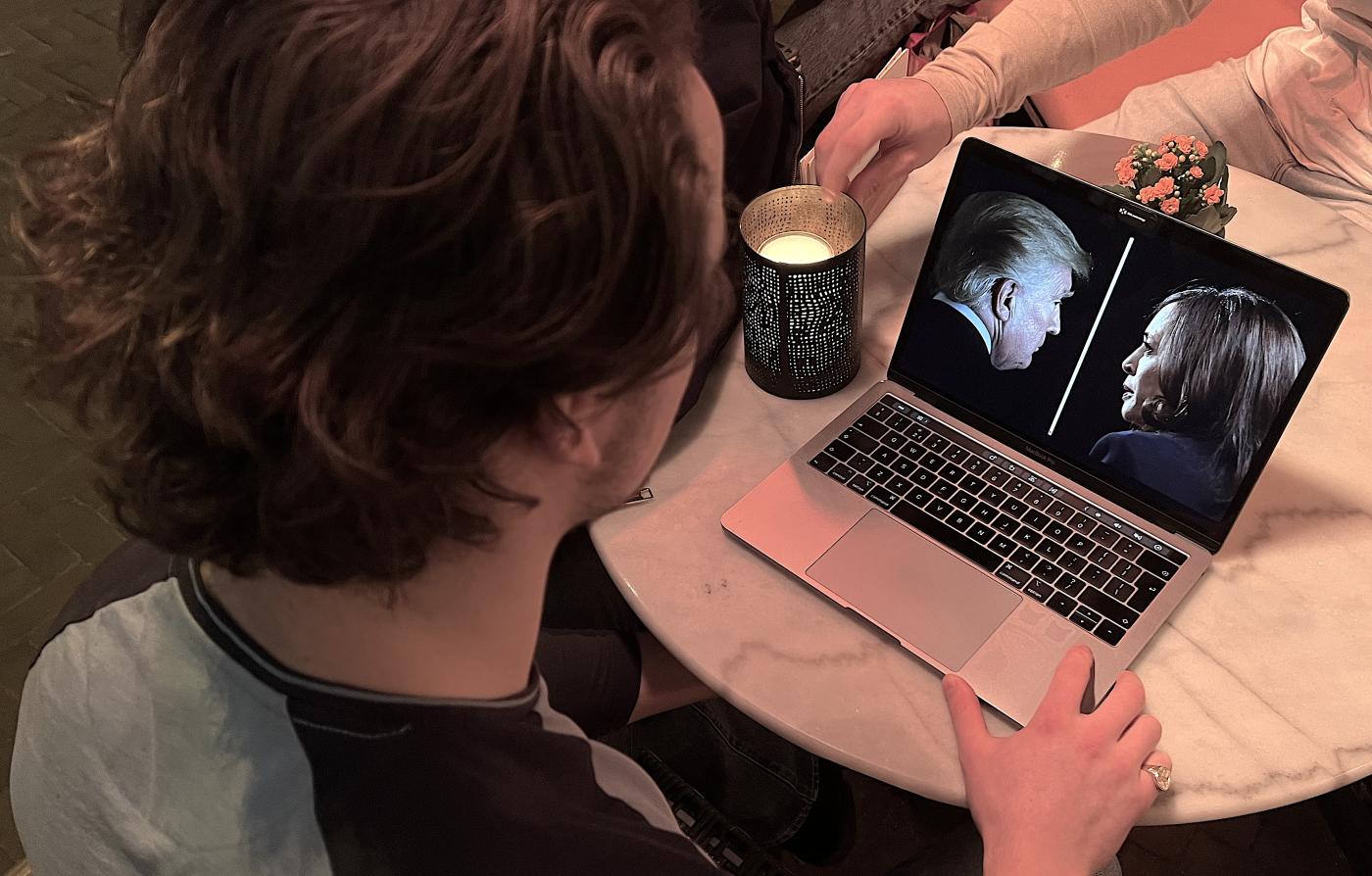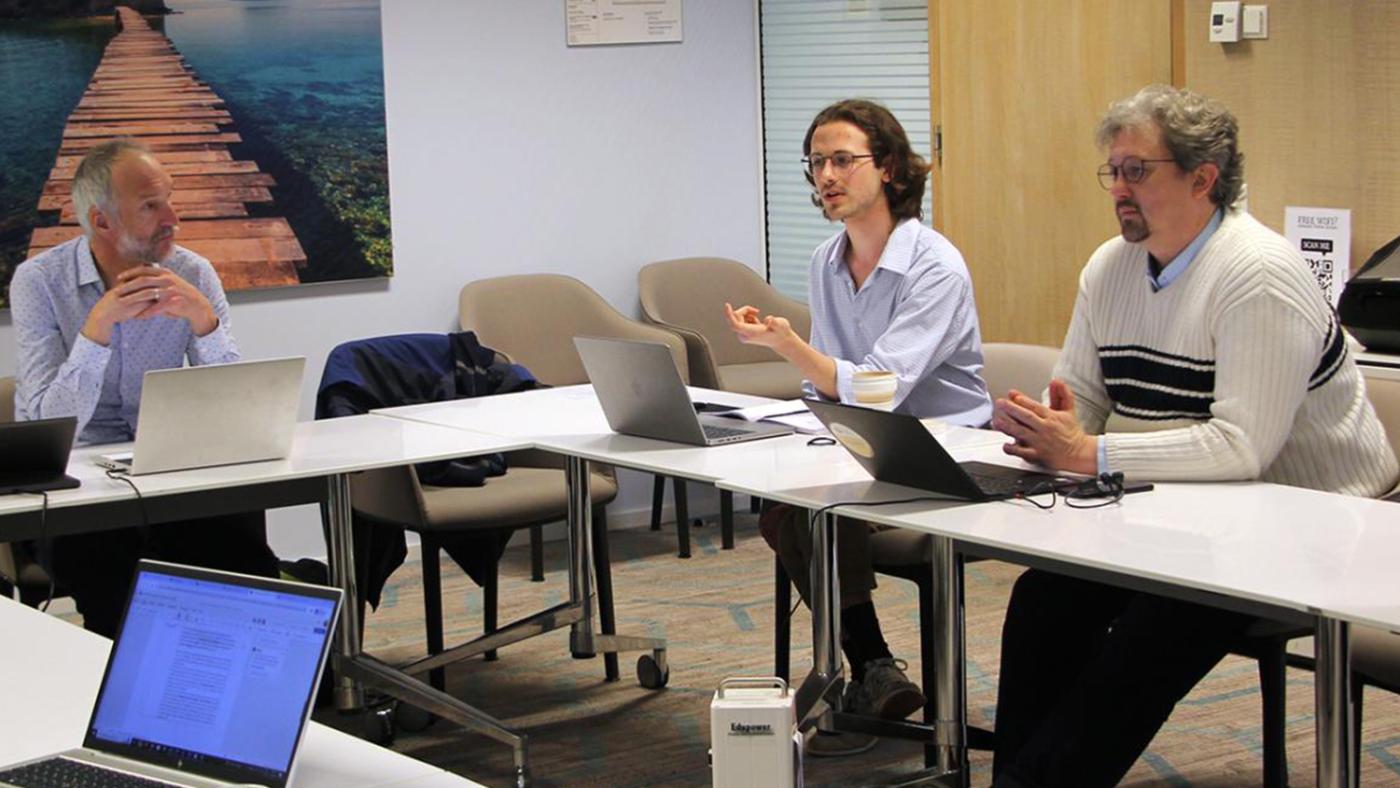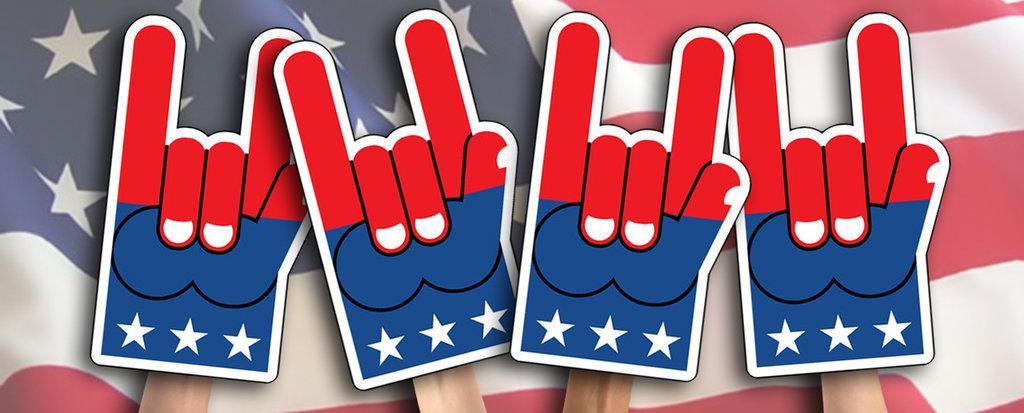American students in Utrecht are affected by the elections
'If Trump wins, I'm not going back'

Madison*, an American citizen studying at the Humanities faculty at Utrecht University, is conflicted. She came to the Netherlands five years ago “for love” and whoever moves into the White House next January will determine how long she will stay here. Madison is a fictitious name, by the way. She hasn't shared her doubts with her friends and family just yet, so she does not want her real name to be featured in this article.
“If Trump wins, I am not going back. I am staying here for the next four years. That is simply not happening,” she says without hesitation. “I miss my home in New York a lot, but if Trump wins again, life in the US will become untenable.” Madison’s biggest concern is Trump’s "Project 2025", a policy proposal that foresees expanding the president’s power and implementing an ultra-conservative social vision. She fears that the implementation of these plans will lead to a fascist state.
Involvement
Trump was still president when Madison came to the Netherlands. She felt liberated from the political polarisation in her home country. Since then, she has made friends, learned the language and grown to feel at home here. She thought maybe she would never have to go back. “As a result, I had a sort of 'that’s not my problem’ attitude towards American politics during the previous elections. “I thought: 'Whatever will be, will be. If they want to be idiots there, fine – I’m in the Netherlands now, so what do I care?'”
But now that she’s lived here for years, having faced a few bureaucratic hurdles, she feels like she can’t fully integrate into Dutch society. She has been thinking about going back more and more. Madison now realises that her previous distance from the elections may not have been the best attitude. “Things have changed,” she explains. “I’m involved with American politics again, especially because of the huge impact it could have on my future and the future of so many others.” That’s why she’s chosen to make her voice heard by voting for Harris by mail, to make her voice heard.
An ocean apart
Matias is a student of Philosophy, Politics & Economics who grew up in Pennsylvania, a state that usually votes for the Democrats but surprisingly went for Trump in 2016, becoming a swing state. Matias also voted by mail, but he manages to distance himself from the situation a bit more. “I have consciously reduced my news consumption,” he says, referring to the constant media coverage of polls and opinions. While Madison feels personally involved in the political spectacle, Matias keeps the battle at a distance. “The physical distance helps, as it gives me mental peace,” he explains.
Nevertheless, his interest in American politics remains great, especially because events in the US impact the rest of the world. “It feels like I am seeing two sides of the same story: on the one hand, distance helps to put things into perspective, but on the other hand, I am aware of how American politics affects everything.”

Matias was a member of the University Council last year. Photo: DUB
Impact on the home front
In Matias' case, the global economic consequences of US politics are the main factor impacting his family in Pennsylvania. His father does business with China, so he is concerned about the impact a second Trump administration could have on international trade. “Trump’s trade policy is pretty harsh,” Matias explains. “This doesn't only concern us, but millions of others who work in this sector.”
For Madison, the focus is more on the emotional impact the political situation is having on her family in the US. The sharp polarization is taking a toll on them mentally, especially during the elections. “My aunt started taking medication when Trump was elected in 2017. It all just became too much for her," she says. Although most of her family members vote for the Democratic party, the political divide still causes tension in the family. "My uncle is a die-hard Republican and my aunt doesn't vote for the Democrats either." She can't understand why they don't vote for Harris, especially since they have a daughter and Trump often makes misogynistic statements and defends policies she deems misogynistic.

'A circus you watch with fear and wonder'
Matias and Madison have both noticed that Dutch students often perceive the American presidential elections as a fascinating spectacle more than anything else. “Their view is generally less well-informed,” Matias explains. “This feels more entertainment to them, a circus you watch with fear and wonder.” In his view, the complexity of the American electoral system is one of the reasons why their people's views remain superficial. “They make many assumptions and stick to an oversimplified representation."
For Madison, the contrast in terms of involvement is a bitter pill to swallow. Many of her Dutch friends and classmates make jokes about the elections, such as saying “You voted for Trump, right?” and laughing. She understands it to some extent but sometimes she feels as though she is not taken seriously, especially considering the election results will have a significant impact on her life. She prefers to avoid the subject as a result.
An unavoidable topic of conversation
However, Madison and Matias are constantly asked about American politics. The questions come from curious classmates, friends and teachers, often accompanied by a light-hearted remark. “They always ask: 'Who do you think is going to win?'" says Matias. “As if I had the answer to that.” This constant curiosity can be tiring. It feels like a repetition that keeps reminding them of their “American label.”
Their nationality puts them in a different position in the Netherlands. Matias finds that American stereotypes sometimes hinder him. "As an American citizen, it's like you're not a real person until people get to know you and realise: 'Oh, you are an individual.'”